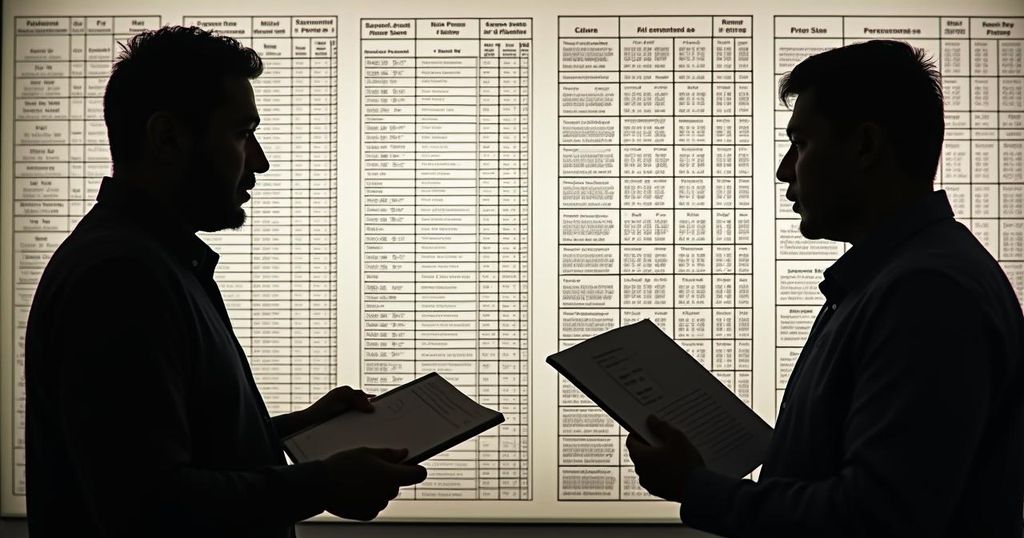Independent Experts Validate Opposition Claims of Electoral Fraud in Venezuela
An independent election group has confirmed that tally sheets from the Venezuelan opposition support their claim that President Nicolás Maduro lost the July presidential election. The Carter Center, observing the election, noted that while electronic voting was used, a paper trail exists that validates the claims made. The opposition secured a majority of the tally sheets and published them, while the government dismissed this evidence and initiated investigations against opposition members.
An independent group of election experts has affirmed the validity of the tally sheets provided by the Venezuelan opposition, suggesting that these documents substantiate their claims that President Nicolás Maduro lost the recent presidential election. This conclusion was put forth by a representative from the U.S.-based Carter Center during an assembly convened by the Organization of American States (OAS) to discuss the ongoing controversies stemming from the election held on July 28. The Venezuelan government had invited this organization along with another independent panel to oversee the electoral process, which they asserted validated Maduro’s victory despite presenting no tangible evidence to support their claims. The controversy primarily revolves around thousands of “actas,” which are printouts indicative of the election outcomes in Venezuela. Each of the approximately 30,000 electronic voting machines utilized during the election produced multiple copies of these sheets, which are accessible to the representatives from participating parties once the information is submitted to the National Electoral Council. Following the election, the ruling electoral authorities declared Maduro the winner just hours after polls closed. However, they refrained from releasing the detailed results associated with individual voting machines under the pretext that their website had suffered a hacking incident. In contrast, the opposition successfully obtained tally sheets from more than 80% of the electronic voting machines and made these documents publicly available. Upon this revelation, the government accused the opposition of falsifying these records and initiated an investigation against several individuals within the coalition, including its candidate, Edmundo González. During a diplomatic session, Jennie Lincoln, the head of the Carter Center’s mission to Venezuela, stated that the electoral system not only utilized electronic means but also produced a paper trail, which serves as evidence of the machine reports. She indicated that these tally sheets had been collected by numerous poll watchers from both opposition and government party representatives. Although she did not declare Gonzalez the winner, she emphasized the importance of these findings.
The recent presidential election in Venezuela has been mired in controversy, particularly concerning the legitimacy of the results and the methods used to tally votes. Allegations of electoral fraud have been a persistent issue in Venezuela’s political landscape, particularly under President Nicolás Maduro’s governance. The opposition has claimed that the election was rigged in favor of Maduro, prompting internal and international scrutiny. The role of independent observers, such as the Carter Center, has become crucial in validating or questioning the election results, and their findings can have significant implications for the political climate in Venezuela and the broader region.
The independent verification of tally sheets by experts from the Carter Center adds a layer of credibility to the Venezuelan opposition’s claims regarding the legitimacy of the recent presidential election. The fact that these results were procured from a significant number of voting machines raises important questions about the transparency of the electoral process. The international community’s call for Venezuela’s electoral authorities to release detailed voting data indicates a strong desire for accountability and transparency in the nation’s electoral practices moving forward.
Original Source: apnews.com




Post Comment